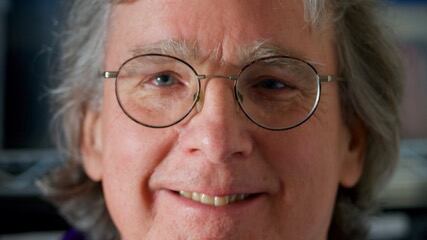What's it going to be, America? Democracy or cat videos?
Roger McNamee, an early investor in Facebook and a onetime mentor to Mark Zuckerberg, says that's the choice we have to make. The people who run YouTube, Twitter and Facebook can't stop the flow of misinformation and lies on their platforms, McNamee says, so the only alternative may be to shut them down completely.
"The country is going to have to decide what it values: democracy and self-determination on the one hand, or the ability to look at cat videos on the other," McNamee said in an interview with MSNBC on Oct. 17. "Our entire system of government is under attack, and it's not clear that our institutions can stand up to it."
McNamee is one of many tech mavens who have turned against social media. The real evil, they say, are the algorithms that serve up new posts and videos based on what people click. Those formulas turn Facebook and other sites into "cult factories," according to neuroscientist and author Sam Harris, radicalizing users as they keep them watching.
"Facebook's internal studies have demonstrated that 64% of the time, when someone joins an extremist Facebook group, it's because Facebook recommended it," McNamee says. "It is not at all clear to me that we can get through this."
Among the biggest threats, McNamee says, is QAnon, the far-right conspiracy group that claims that Donald Trump is battling a secret society of Satan-worshiping pedophiles and cannibals for control of the world. Until last month, when Facebook finally banned it, QAnon thrived on the platform for three years, recruiting new believers. But it may be too late.
"It's very clear that the people running these companies can't control them and that their value systems are misaligned with democracy," McNamee said. "There are some businesses that we have banned, like slavery."
McNamee's critique is striking on its own, but it's blistering if you consider his background. He left his job as a mutual fund manager in Baltimore and moved to California's Silicon Valley in 1991, where he sank money into Google, Yelp and dozens of others. Among his biggest winners: investments in Facebook in 2009 and 2010. Three years earlier, McNamee advised founder Mark Zuckerberg not to sell his company to Yahoo! for $1 billion. It was good advice. A 2012 initial public offering valued Facebook at $104 billion.
Now Facebook has no bigger critic than McNamee.
He saw the light, he says, in 2016, when he watched false political advertising on the platform fan the flames of Trumpism and Brexit. He emailed CEO Mark Zuckerberg and chief operating officer Sheryl Sandberg and warned that Facebook had enabled things that were "truly horrible."
They brushed him off, and McNamee's inner bomb-thrower emerged.
"The values of these companies conflict with the Enlightenment values on which this country was founded," McNamee said in an interview with WW.
McNamee has been on a jihad since, speaking and pitching his new book, Zucked: Waking Up to the Facebook Catastrophe. He will have more things to say when he speaks at TechfestNW, WW's virtual event Dec. 2-4.
McNamee is a man of contrasts. If he's not a billionaire, he's probably close. But he's also a Grateful Dead fan who sings in two touring bands, often belting out ballads about cannabis. For a (very) rich hippie who is otherwise cheerful, McNamee can get dark. He suspects the Trump administration may be cooking the numbers to make the economy look better than it is. "Why not?" he says. "They're cooking everything else."
McNamee sees a scary alliance between Zuckerberg and Trump. Zuckerberg, McNamee says, considered Trump his best protection against Democratic presidential candidate Elizabeth Warren, who had vowed to break up Facebook.
He frets about Google, too, particularly what the company, now called Alphabet Inc., is doing with its Sidewalk Labs subsidiary in Toronto. The local government there has given Sidewalk near carte blanche to develop 12 acres of derelict waterfront.
On paper, the project looks fantastic: Sidewalk plans to spend $1 billion to build thousands of apartments and shops, all connected with free Wi-Fi, snow-melting bike lanes and sidewalks, light rail, and self-driving cars.
The part that freaks out McNamee is a plan to install sensors to gather "urban data," as Sidewalk calls it, on traffic, pedestrian volume, and even usage of park benches. Sidewalk says that information will be used to better plan new parts of the neighborhood and improve old ones. McNamee and others say it will create an Orwellian surveillance state.
"If you were going to pick one place to win the battle, that's it," McNamee says. "They're going after control of municipal services."
So, how does big tech's Cassandra stay sane and happy in these troubled times? Music. Moonalice, one of McNamee's bands, had a hit with "It's 4:20 Somewhere." In another song, McNamee croons the title, "Am I High?"
The answer, despite Trump, Brexit and the digital surveillance state, is, still, yes.
Editor's note: A slightly different version of this story ran in the spring, before TFNW was canceled due to COVID and rescheduled for this December.

